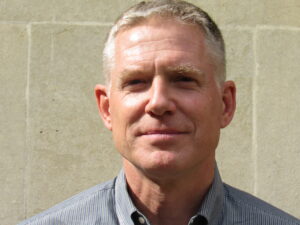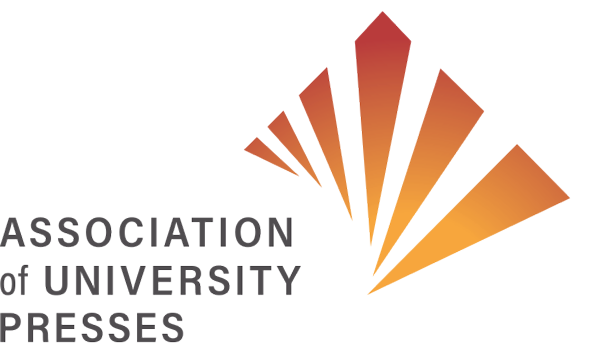Inaugural Presidential Talk
President, Oxford University Press
June 2020

Greetings, everyone, from Brooklyn, NY, where the soundtrack of early spring—ambulance sirens—was for a period replaced by ubiquitous birdsong as traffic vanished overnight, only to be interrupted by the nightly 7 pm ritual of clanging pots and pans to celebrate health care workers, and has now been joined by the sound of police car sirens and the constant thrumming of stationary helicopters overhead.
I’m recording this on Monday, June 8, and am conscious that, given the pace of events, the context in which you will be watching this may be radically different from the present one, making both tone and substance a challenge. In talking to my colleagues this past week, the word “compartmentalize” has come up a lot, as in “I can’t concentrate, I can’t put what’s happening in the world aside, I can’t focus.” And it IS a challenge to focus on publishing and markets and launch dates and inventory and sales conferences when we watch our citizens being wantonly killed in the streets by police, shotgunned to death for going for a run, and yanked from their cars and Tased, only the latest Black people in a sordid history of those who have been for years now been shot in their homes, their backyards, in their cars, and in their neighborhoods.
Since starting in this industry, I’ve never had to force myself to focus on my work. In fact, it’s one of the things I remember most about my time as an editorial assistant: the way in which I’d be so focused on my work that I’d enter into a fugue state of sorts, looking at the clock to realize that far more time had passed than I’d realized. But I’ve had a hard time concentrating these past weeks, with the only analogous experience being the days immediately after 9/11.
This past weekend, there were tens of thousands of people in the streets at multiple locations within five miles of where I’m sitting. The makeup of those crowds has been a thing to behold, a mosaic of humanity even by the standards of New York City crowds, and that constellation of outrage does feel like something is happening in America right now.
We get lampooned as an industry occasionally for our inclination to conclude book subtitles with the four words “that changed the world,” but it’s hard to imagine that the last three months WON’T end up having changed the world. The real question facing all of us—as publishers, as citizens—is HOW will they have changed the world. And how can we as publishers help contribute to that change in a positive and meaningful way that dovetails with our mission as university presses?
A lot of us publish books of history and it seems an appropriate moment to quote a historian who is taking a long-lens view of the current moment. The historian Nancy Bristow writes, in a new book, Steeped in the Blood of Racism, about the Jackson State killings that happened almost exactly half a century ago, within days of Kent State, and which resulted in the deaths of two Black students and the wounding of eight: “For people of color, the embodied danger posed by law enforcement cannot be ignored and must be acknowledged and talked about. The students at Jackson State in May 1970 knew this. African American parents today know this. Awareness of the long history of hostility by the state and the often-violent reactions of law enforcement toward people of color they perceived as acting ‘out of their place’ is not a choice. It is a matter of survival.
“The costs of the law-and-order narrative and its criminalizing of African Americans is still terribly high. . . . Especially those of us who live as white people must look with open minds and hearts at this nation’s history and recognize the role white supremacy has played in our past. We must acknowledge that we are implicated in its persistent damage in the present. And we must become true accomplices in the fight for racial justice, which demands that we pursue with humility the knowledge that might make this possible. Until the nation takes on this task, and does so with integrity and seriousness of purpose, the parade of horrific assaults like what happened at Jackson State in May of 1970 will continue.”
About three months ago, and what seems like a comparable number of lifetimes ago, Christie Henry, the director of Princeton University Press, and I were emailing back and forth about a plenary talk we’d agreed to co-present at the Redux meeting in Cambridge. In considering what to say to you today, I went back to the draft of that speech, which of course like so many other things these days, has been decidedly overtaken by events.
Rereading the draft, I was braced to think to myself how naïve I was and how all the things we’d identified as priorities had now decidedly taken a back seat, possibly even in the way way back. And there was certainly a bit of that. For example, I’d set up a binary projection about our possible futures, one entitled “The Hopeful Perspective,” the other “The Beleaguered Perspective.” From the Zoom hangouts and various conversations, a sense of beleaguerment is certainly more pronounced than a sense of hopefulness. And yet, and yet:
- There has certainly been an upsurge in the coverage of the industry and of the role of books in culture.
- Closer to home, the number of full and affiliate members of the Association of University Presses has increased from 125 to over 150 in the last five years, and is now at an all-time high.
- New presses have started at Amherst, Australian National University, Cardiff, Cincinnati, and that’s not even reaching the fourth letter of the alphabet…which others?…Regina (2014) and Qatar (2018)
- Many of us are seeing sales declines that are less dramatic than we’d feared and we’ve even heard of year-on-year sales increases.
- Most importantly, university presses remain non-partisan seekers of the objective truth, and, as such, their services are more valuable now than before.
But we can’t gloss over the unavoidable reality that the next 2-3 years are likely to be difficult. For anyone who has spent any time listening to Scott Galloway’s projections about the impact of the covid crisis on higher ed, our markets will shrink, as will our author base, and our audience will want different things from us.
Christie has suggested a metaphor of “peer review,” as a means of helping us engage in the self-evaluation necessary to establish our priorities, and I want to suggest a few questions that we might include in a reviewer letter template if we were to turn peer review on our own institutions.
Peer Review questions:
- Is our angel-investor, every-book-is-a-startup approach still fit for purpose? Or should we consider moving toward more of a service model, akin to the sort of author-or-institutions-pays model that has informed OA movement? Is a commercial sales model still the right one for books that sell 180 copies in print? I’ve always thought a market-based approach is preferable to a donor-based one, not because I’m a dyed-in-the-wool capitalist but because it seems less risky not to rely on a single individual’s largesse or the support of a single philanthropic institution, but rather on a dispersed interest in what we publish. We are all familiar with the funding issues in OA itself but this seems a question worth asking, and a binary worth complicating (OA v. sales).
- One of the questions we might ask ourselves is what role our regional lists should play in our forward publishing? I would argue that the answer here is necessarily a full-throated support for this branch of our publishing, since this sort of work both cements our bonds to our home institutions and our local communities, and often occupies a space covered by only few competitors.
- What lessons can we learn from the experience of textbooks publishers whose model was undermined not by a digital development, per se, but by the consolidation of used book markets for print books via a central site (Amazon) and the rise of a print rental model?
- On the subject of consolidation, what is going to happen to our markets? Will we see the consolidation that has transformed retail, wholesalers, and publishers now increasingly define institutional library markets and college courses? I think this is inevitable, which then begs the question of how we can best respond to this development.
- In a NY Times profile, Emily Powell, the CEO of Powell’s Books, spoke to the challenges of fragmenting needs, formats, and channels in a way that will ring true to this group: “When we opened, all we needed were wooden bookshelves, a rotary phone, a cash register and cash. Now we, like many other retailers, need social media. We need dev-ops engineers to build an automated website. We need a database that lives in the cloud that’s searchable in a very nuanced way. There are far more costs to doing business.” So, the question for us as a community is how we can possibly afford similar costs for publishers—SEO experts, data analysts, etc.—without bankrupting ourselves. Is there a collaborative model that saves efforts while not running afoul of anti-collusion measures?
I realize of course that I’m posing questions without providing answers (it’s a reviewer letter, not a review), but, given the diversity of our community, the answers will, I think vary considerably from press to press.
A few closing thoughts on how we approach this particular moment, as we are whipsawed constantly between virus statistics and trends, the latest shocking video, blaring news updates, funding crises, and, yes, let’s not forget, the daily joys and pleasures and challenges of publishing books and journals.
- Efficiency is critical but it’s not an end goal; it’s a means to an end. Publishing unavoidably involves risk. We have to manage risk but we can’t eliminate it, since that would require stasis. So too with efficiency. Forward movement requires some tolerance for inefficiency.
- Just as we were learning about the impact on our psychologies and our physiologies of a screen-mediated professional life, of fractional delays in video communications, of the role of physical proximity in creating a sense of common purpose and cohesion, the virus began to bite, followed in quick succession by the killing of George Floyd and the movement it catalyzed. And every event of the last three months has cast our differences into stark relief: differences around the lived experience of race, around economic security, around health, and around the enormous *mental* health toll that these events are exacting on many of us and our colleagues. Emile Durkheim said that, “any communion of consciousness, in whatever form it takes place, enhances social vitality.” We will all need to work hard to create that social vitality and to nurture our communities in the weeks and months ahead, and that’s everyone, at every level of the press.
- Finally, and perhaps most importantly at this particular moment, we must continue to drive change from within our organizations. Our recently released Statement on Equity and Anti-Racism, which I encourage you all to read, includes the following imperative, which gets at an elemental truth that those in the majority not only too often overlook but almost never internalize, and it seems to me to speak volumes so I’m going to close with it: “Meaningful change requires that we respect lived experience as a form of knowledge, along with professional and academic expertise.”
Thank you very much. I am thrilled to be serving you in this role, especially at this moment, and I will do all I can to represent you to the best of my abilities.
